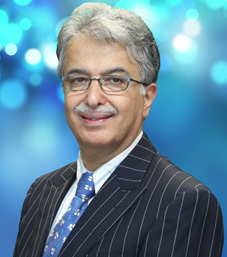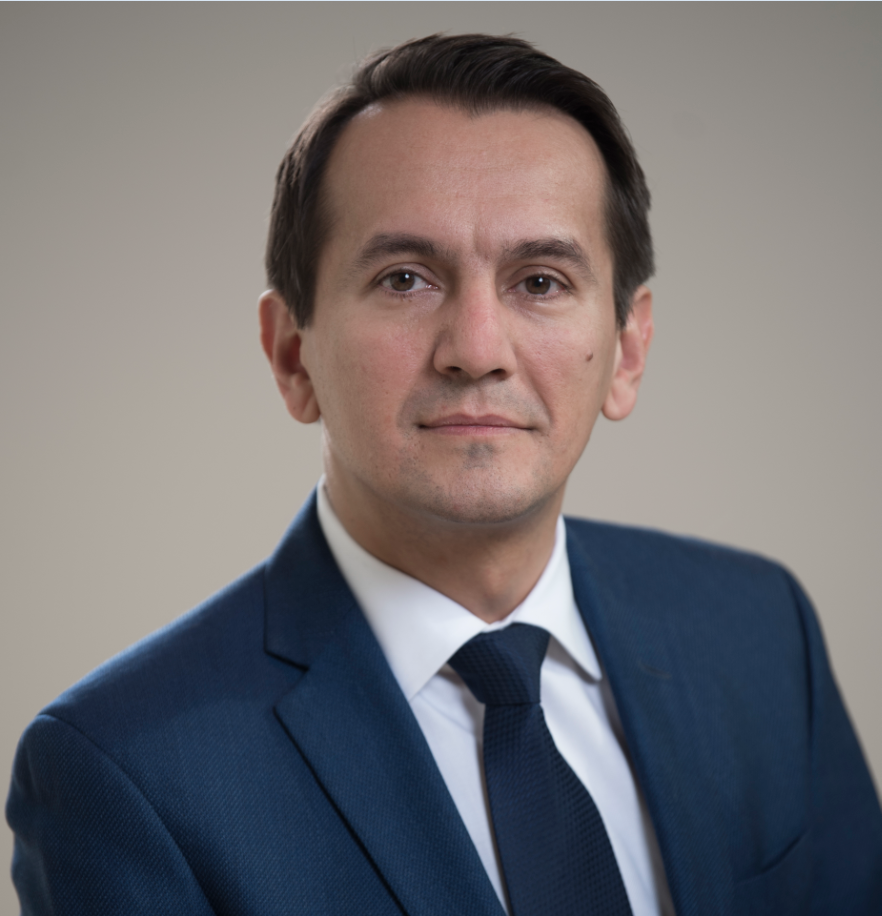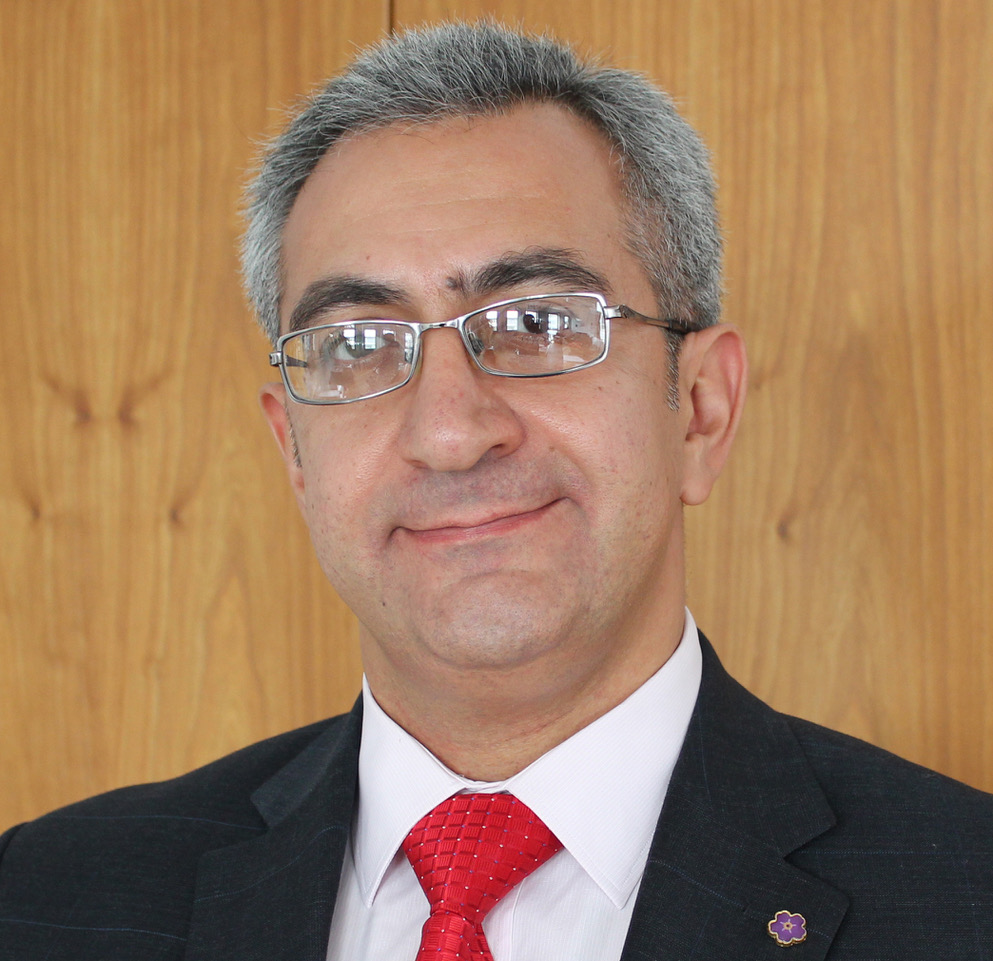
|
|
Hojjat Adeli received his Ph.D. from Stanford University in 1976 at the age of 26. He is currently an Academy Professor at The Ohio State University where he held the Abba G. Lichtenstein Professorship for ten years. He is the Editor-in-Chief of the international journals Computer-Aided Civil and Infrastructure Engineering which he founded in 1986 and Integrated Computer-Aided Engineering which he founded in 1993. He has also served as the Editor-in-Chief of the International Journal of Neural Systems since 2005. He has been an Honorary Editor, Advisory Editor, or member of the Editorial Board of 144 research journals. He has authored over 600 research and scientific publications in various fields of computer science, engineering, applied mathematics, and medicine, including 16 ground-breaking high-technology books. He is the recipient of over sixty awards and honors including three Honorary Doctorates from Lithuania, Spain, and Italy, and Honorary Professorship at several Asian and European Universities. He is a member of Academia Europaea, a corresponding member of the Spanish Royal Academy of Engineering, a foreign member of Lithuanian Academy of Sciences and Polish Academy of Science, a Distinguished Member of American Society of Civil Engineers (ASCE), and a Fellow of AAAS, IEEE, AIMBE, and American Neurological Association. He was profiled as an Engineering Legend in the journal Leadership and Management in Engineering, ASCE, April 2010, by a noted biographer of legendary engineers.
|
|
|

|
|
Marius George Linguraru, DPhil MA MSc loves working with multidisciplinary teams of clinicians, scientists and engineers to help children grow healthy and happy. He is Principal Investigator in the Sheikh Zayed Institute for Pediatric Surgical Innovation at Children's National Health System in Washington, DC, where he founded and directs the Precision Medical Imaging Group. Dr. Linguraru is also Professor of Radiology and Pediatrics and Secondary Professor of Biomedical Engineering at George Washington University. He co-founded PediaMetrix LLC, a company focused on infant well-being by creating solutions to improve the management of conditions of early childhood. He joined the Sheikh Zayed Institute from the National Institutes of Health Clinical Center, where he maintains an appointment as Associate Investigator. He completed his doctorate at the University of Oxford and holds masters degrees in science and in arts from the University of Sibiu. He held fellowships at the French National Institute of Research in Computer Science and at Harvard University.
Dr. Linguraru is the recipient of numerous awards, including a prize for Excellence in Engineering by a Younger Engineer at the Houses of Parliament in London, UK. He is a member of the Technical Directors Board Committee of the IEEE Signal Processing Society, Vice-Chair of the Technical Committee on Biomedical Imaging and Image Processing of the IEEE Engineering in Medicine and Biology Society and served as Distinguished Lecturer of the society. He is the General Chair of the IEEE International Symposium on Biomedical Imaging 2019 in Venice, Italy.
|
|
|

|
|
Georgi Chaltikyan, MD, PhD is professor of Digital Health, eHealth, Telemedicine and [Cross-Border] Healthcare Management, and coordinator of the study program Master of Medical Informatics (MMI) at European Campus Rottal-Inn, a branch of Deggendorf University of Applied Science (Deggendorf Institute of Technology, DIT) in Bavaria, Germany, and president of Armenian Association of Telemedicine (AATM). Georgi Chaltikyan is a graduate of Yerevan State Medical University in Armenia. He has been trained as general surgeon and spent about 15 years in clinical practice in general and laparoscopic surgery. He has extensive experience in healthcare education, research and management; in 2001-2009 he has served as associate professor at the Department of Surgery of Yerevan State Medical University, and has taught medicine and surgery to undergraduate and postgraduate students. He has nearly 10 years of work experience in the field of Healthcare Information and Communication Technologies. As the founding president of a non-governmental organization Armenian Association of Telemedicine (the national member of the International Society for Telemedicine and eHealth and the European Federation for Medical Informatics, and an international partner of the American Telemedicine Association) he has been instrumental in design and implementation of a number of successful eHealth and telemedicine projects with international participation. Prof. Chaltikyan joined the Faculty of Applied Health Sciences of Deggendorf University in 2015; he is the coordinator of the master’s program in Medical Informatics, and is responsible for several other study courses in the healthcare domain. He has publications on different aspects of eHealth and telemedicine, and is involved in several research projects in digital health.
|
|
|

|
|
Andreas Voss (Male) is since 1997 Full Professor in Biosignal Processing and Medical Informatics at the Ernst-Abbe-Hochschule (EAH) in Jena, Germany. Before that, he worked as leader of the Biosignal Processing research group at the Max-Delbrueck-Centre for Molecular Medicine in Berlin. In 2015, he founded the Institute of Innovative Health Technologies IGHT at the EAH where he acts up to now as the director and coordinates the research between five different departments. His research interest are linear and non-linear analysis of multivariate and multiscale data and systems analysis (e.g. risk stratification in different diseases), characterizing autonomic regulation (heart diseases, schizophrenia, depression, stress...), time-frequency analyses, knowledge based interpretation of physiological and pathophysiological regulations, and electronic senses (electronic nose). Prof. Voss (h-index 37, RG score 43.52) published more than 300 papers in peer reviewed journals. He is member of scientific societies (DGBMT, European Society of Cardiology, and IEEE), organizer, co-organizer and associated editor of various national and international conferences as well as member of scientific boards of various other academic events and scientific journals. He acts as reviewer and for many international journals, conferences and grant agencies.
|
|
|